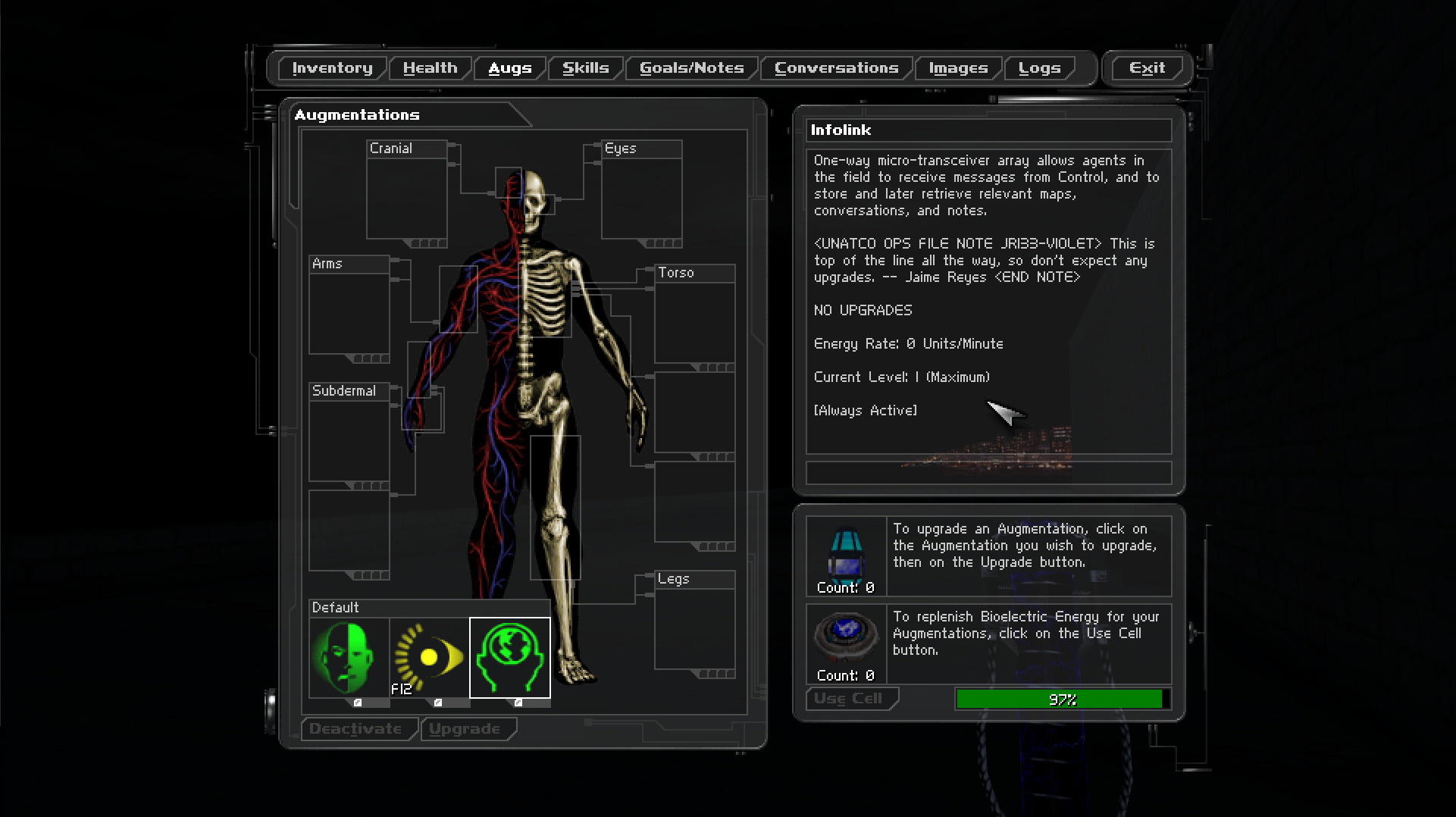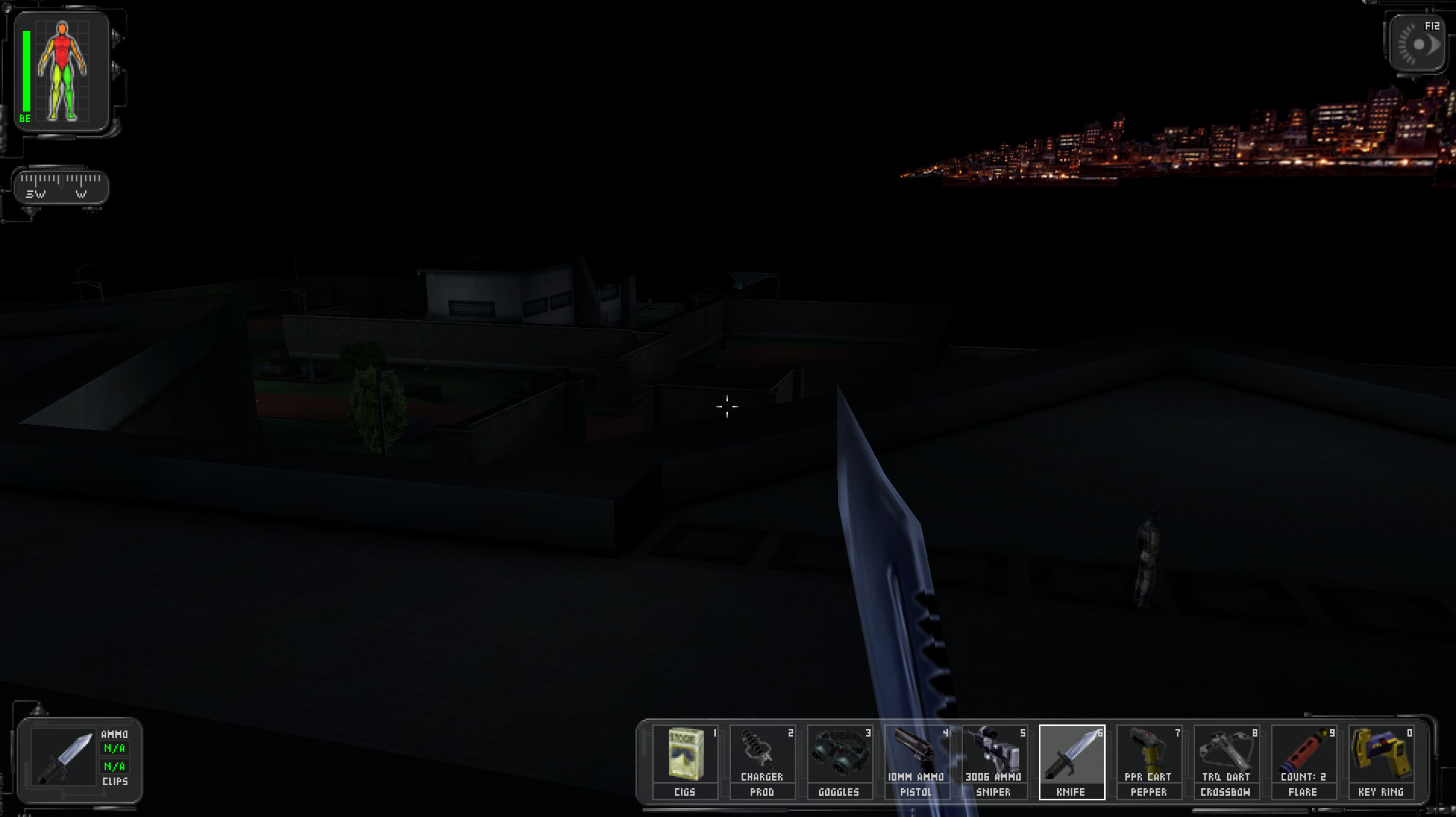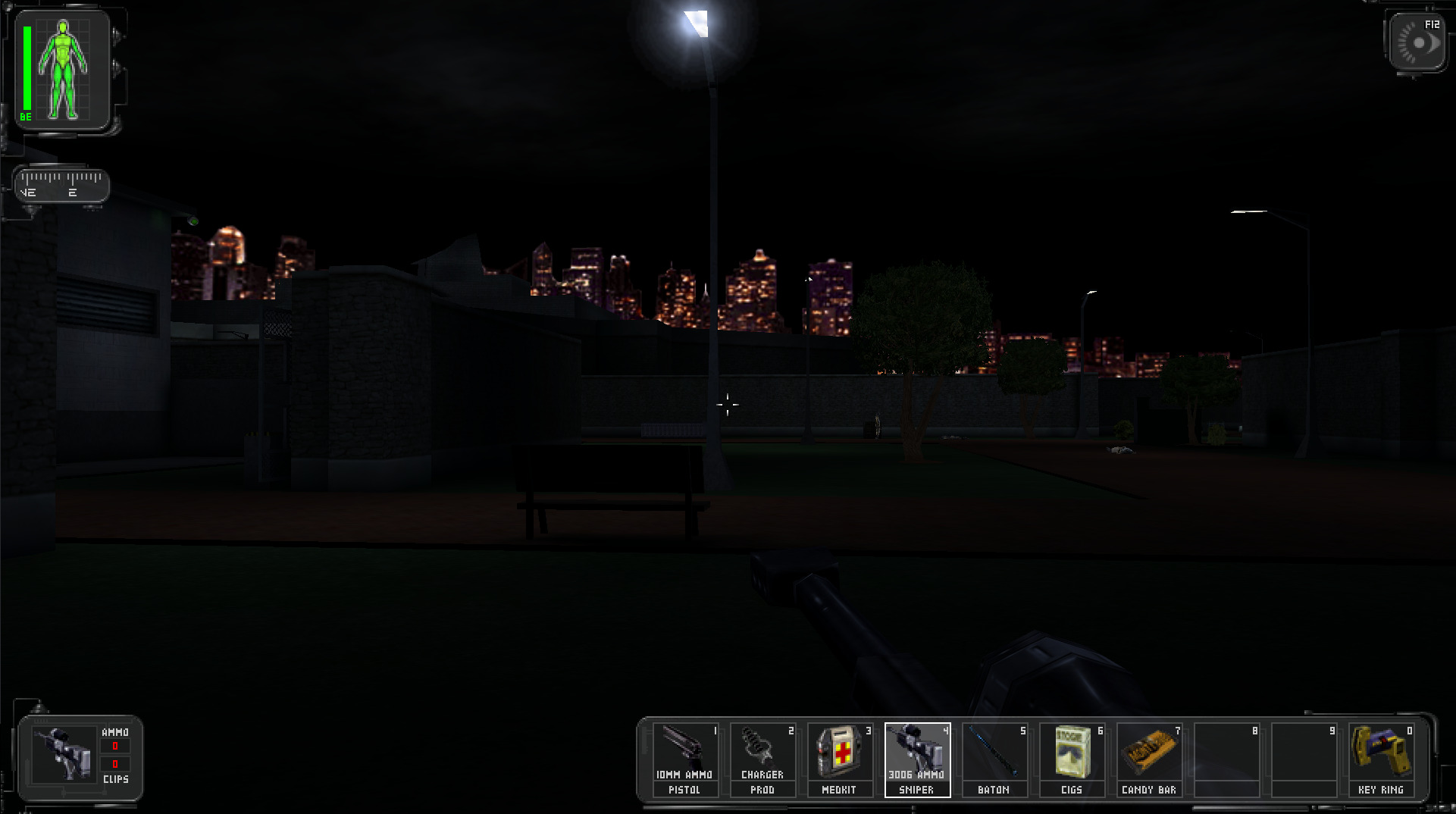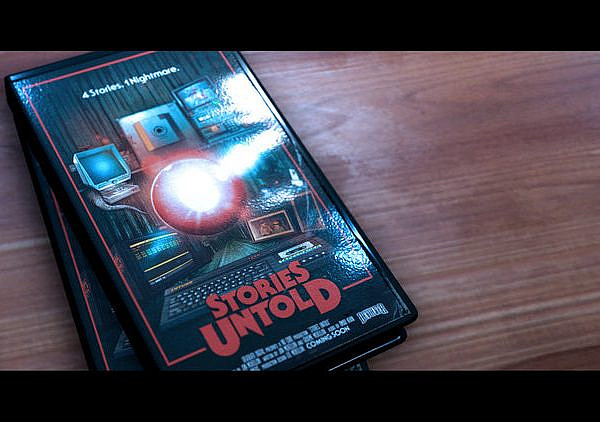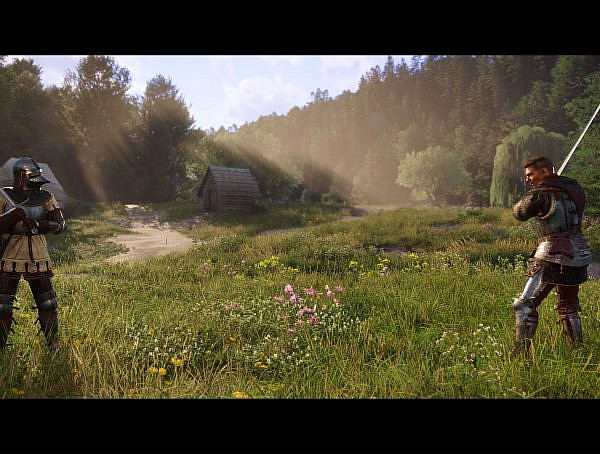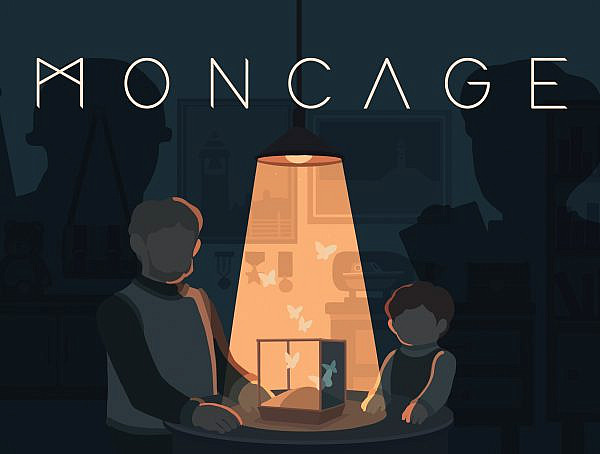Deus Ex, developed by Ion Storm in 2000, is a role-playing first-person shooter set in the year 2052. In Deus Ex, the player character is JC Denton, an agent of the United Nations Anti-Terrorist Coalition (UNATCO). During his missions, JC will come across a dark conspiracy, an ancient secret society, criminal organizations, and terrorism, in a world suffering from a lethal pandemic, known as Gray Death.
Deus Ex has a compelling story and great narrative direction, which has solidified its place among the greatest role-playing first-person shooters. A global pandemic, all the conspiracy theories surrounding it, and the struggles caused by limited access to a vaccine sound painfully relevant to this day. The story takes Denton from one country to another, from one continent to another while he is following his leads. Not only is the story well-constructed, but the player can significantly affect the unfolding events.
Considering the game is set in the future, it’s fascinating to see the technological advancements humankind has made. One of the game’s main themes is biotechnological development: the top agents are heavily augmented with either mechanical parts or nanotechnology, and JC Denton is no exception. Through the game, the player can choose to augment Denton, giving him more abilities and capabilities in the process.
Prior to playing the game, I already had some history with it. One of the things that ultimately got me into trying the game out was its soundtrack. The tracks set a futuristic mood, and in-game the effect gets amplified by manifold. If there’s one thing in the game that does not break the immersion, it’s the music direction. I could spend the whole day in the UNATCO headquarters just listening to the soundtrack and the background ambiance.
The game has its weaknesses, though. The graphics are outdated by current standards, and some of the areas have a vast amount of empty space. The overall lack of assets makes many rooms and outdoor areas seem really big relative to the characters. Nevertheless, the visuals succeed in creating a futuristic atmosphere, and a dark aesthetic in general. Furthermore, some of the game mechanics feel remarkably clunky compared to the modern installments in the Deus Ex series. For example, the movement and aiming, the very foundations of a good FPS game, didn’t feel intuitive for me. In the beginning, I wasted numerous bullets on shots that I felt should have hit the target.
Despite its weaknesses, the strengths greatly outweigh the game’s limitations. The missions are thrilling, and making progress feels rewarding. I could definitely recommend the game for anyone longing to unveil deep conspiracies as a futuristic agent with superhuman capabilities.
Publisher: Eidos Interactive
Developer: Ion Storm
Platforms: Microsoft Windows, Mac OS, PlayStation 2, PlayStation 3
Release date: June 23, 2000
Genres: Action role-playing, first-person shooter, stealth
PEGI: 16
Credits: The pictures are in-game material taken by the author
More from Game Reviews
Stories Untold – An Experimental Psychological Horror Adventure
Stories Untold is a narrative-driven horror adventure game and a truly remarkable take on the genre. The four episode anthology …
Kingdom Come: Deliverance II – A Sequel Worthy of a Knight
KCD II delivers a living, breathing medieval roleplaying game to its players. #RPG, #kingdomcome, #openworld
Moncage Review: A Puzzle Game with Mind-Boggling Optical Illusions
Solving a huge #optical_illusion #puzzle in a tiny cube to discover a dark, #emotional story of trauma







